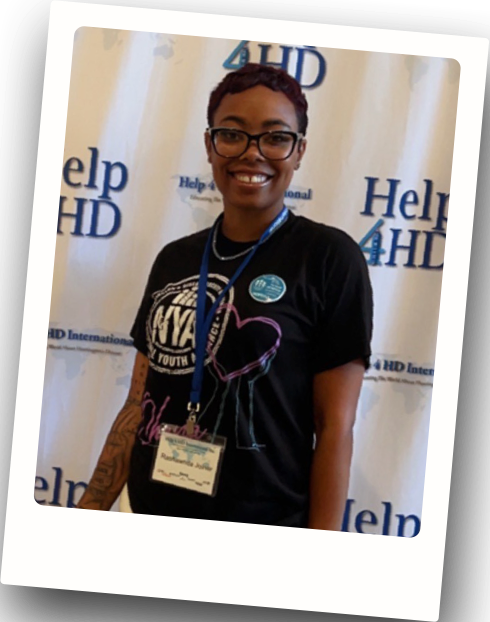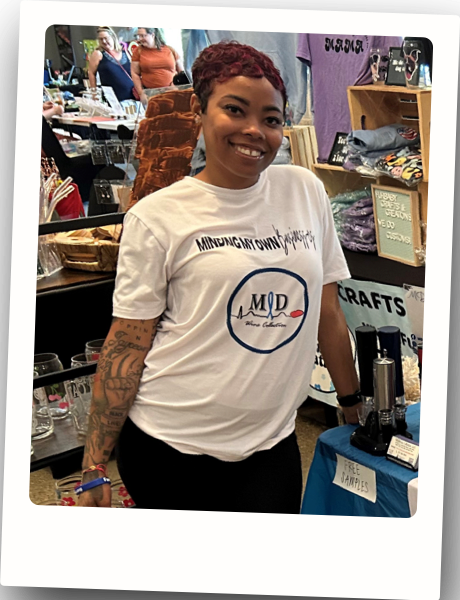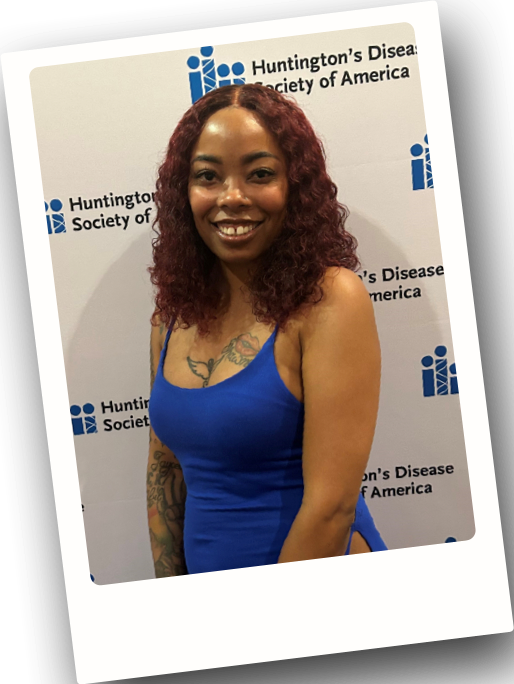Planning for HD chorea
can help you preserve
your independence
RASHAWNDA J.
Person with
Huntington's disease
Mentor for the Huntington’s
Disease Society of America’s
National Youth Alliance
“Sometimes with this disease, people don’t know how to feel for you. It’s difficult for them to empathize with you.”

“When I was younger, I learned Huntington’s disease (HD) was on my father’s side, but I wasn’t aware of the significance of it. My aunt had HD and I thought it was so sad, but I was too young to really understand what that meant. Over the years, my mom would sometimes remind me that
HD ran in my dad’s family. She suggested I should get tested but she never forced it. No one on my dad’s side talked about HD—there was just no education or discussion from them about it.
In October 2020, at age 26, I decided to get tested for HD. My primary care provider got my results and said they were abnormal, so I was referred to the University of Cincinnati Neurology Department where another test confirmed I had HD. I was angry. I got the gene from my father who I had a rocky childhood with, and now I have a rocky future.
After I was diagnosed, I attended Help4HD and Huntington’s Disease Society of America (HDSA) conventions to learn more about HD. Eventually, I joined the HDSA National Youth Alliance to become a mentor. Being around the HD community helped me feel like I was in a better place in the few short years following my diagnosis.
“The thing I love about the HD community is I don’t feel alone anymore. Talking to others and hearing about their experiences with HD has helped me so much.”


I’ll be 30 years old soon, and I’m thinking about my options for starting a family. I’m also planning financially for my future, saving money and establishing life insurance. Although I don’t show any symptoms of HD yet, I know what my aunt and grandmother experienced and how their HD progressed. Even though my dad’s family didn’t educate me on HD when I was younger, I’m proud that now I can share what I’ve learned with them. I tell them about the conventions and the contacts I’ve made, and I let them know there’s a Center of Excellence nearby if they want to get tested. I try to support them every way I can. Having support when you have HD is critical.
I try to make the most of each day and to not dwell on my HD diagnosis. At the beginning of this journey, I wasn’t prepared. I didn’t know much about HD but now, I see how much support is out there. The HD community is so helpful and accepting. Now I know I’m not alone with this amazing community behind me.”